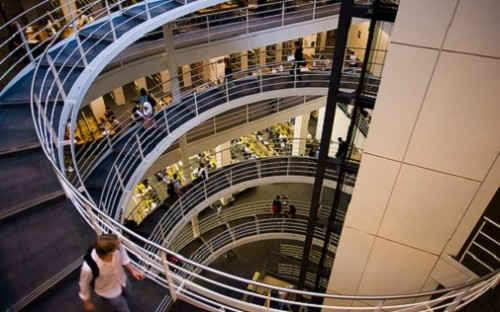Both students and business schools are looking to alternatives. And shorter, more flexible master’s programs are in high demand.
Saul Estrin is director of London School of Economics’ Executive Global Master's in Management (EGMiM), dubbed the cutting-edge alternative to the MBA. Since its launch in 2012, he’s overseen a steady stream of applicants, with classes of up to 50 high-caliber students each year, looking for something different.
“We tend to attract younger students, still hungry for new methods and new ideas,” he says. “It’s clear there is already overcapacity in the MBA market, but plenty of space yet for world-class master’s programs.”
The only program of its kind, LSE’s EGMiM covers the same core curriculum as a traditional MBA but takes a fresh, more theoretical approach. EGMiM students don’t just learn how to apply current management tools, they question them.
The 17-month, part-time program consists of seven one-to-two-week modules. It’s a global program, with international modules in China and India. And since its inception, its attracted diverse cohorts of 54 different nationalities.
Brian Scullin was enrolled in a full-time MBA program at the University of Maryland’s Smith School of Business, but dropped out after one term when a new job opportunity took him to New York. Several months later, he switched to LSE’s EGMiM, excited to be part of its first ever intake.
“The MBA is very common in the US,” he says. “If ten MBAs apply for one job today, what’s truly going to be the difference? The EGMiM gave me the opportunity to differentiate.”
With the EGMiM’s flexible format, Brian could study alongside a full-time job and consistently apply his learnings in the workplace. He started the program in September 2012. By mid-2013 he’d been promoted and given a pay rise.
“LSE’s core mission of getting you to understand the root causes of things, to be a bit more innovative in your thought process, supplemented my skillset. That was completely acknowledged by my employer,” he continues.
“The EGMiM moves away from the by-the-book thinking of the MBA. The MBA tells you what to do and when to use it. The EGMiM tells you why it is that way and asks you to consider whether it truly is the best approach.”
Recent EGMiM grad Anthea Kolitsas agrees. She studied a Bachelor of Commerce as an undergrad. Prior to joining LSE, she had several years of experience working in higher education with contacts at top universities across the world.
She considered MBAs and master’s programs at five different business schools in the UK and the US, but it was LSE’s EGMiM which really stood out.
“I feel like MBAs are all the same,” she says. “The EGMiM offered a different approach to business.”
At LSE, Anthea tailored the EGMiM to her own interests, completing a real estate and finance-focused dissertation. She experienced university life in Singapore and visited investment banks in Turkey. And she landed a new job in London during the program, joining the Canada-UK Foundation as its executive director.
“I came to the UK because I wanted to keep broadening my scope and horizon in my education,” she explains. “Already coming from a business background, I was looking to invest in a network, an opportunity, an experience. The EGMiM one hundred percent delivered on that.”
One of the leading social science universities in the world, LSE has always been at the forefront of innovative, progressive thought in education. Now, its more theoretical, multi-disciplinary approach to management is challenging the traditional teaching of the MBA.
Brian is born and bred in Washington DC. He played college football at Dartmouth. Before joining LSE, he’d never been out of the US. But he abandoned his pursuit of the MBA – the hallmark of American business education – to keep pace with the fast-changing business world.
“I wanted to go through a personal transformation,” he says. “The chance to go to a new program at a school seen as a game-changer in economics and social sciences, with a global brand and reputation, you just can’t top that.”
RECAPTHA :
28
f4
40
af








